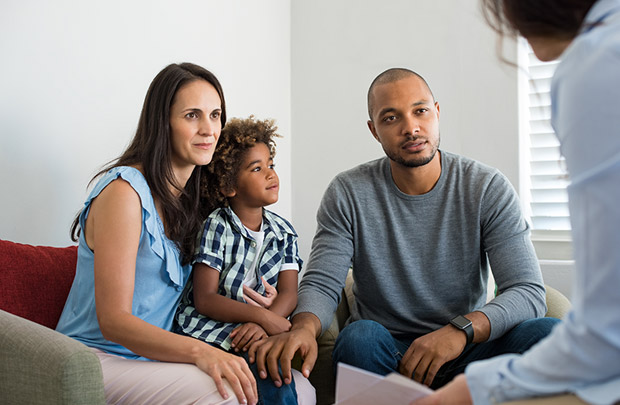
In this guest post, Tyler Helbach from the Northwest Adoption Exchange suggests questions to ask when researching agencies.
Finding the right agency to complete a home study is important. The partnership you form with your agency and their ability to work with your family can be critical in helping you adopt from foster care. While our organization doesn’t endorse any specific agency, we have learned that there are a few key questions families can ask to make sure you’re making an informed decision on which agency to work with.
What makes your agency different?
In most communities, there are both public and private agencies. Each one is unique. The right agency should be able to clearly spell out how their model benefits families and children and what makes them stand out.
When you’re interviewing an agency, it’s important to ask why they are special and what makes them different than other agencies in your area. Finding out what an agency values and how that shapes their work can be a great indicator if they might be a good match for your family. For example, if an agency is primarily focused on their great foster care program and you’re not interested in taking temporary, foster care placements, that agency may not be the best fit for you. While there are certainly agencies that work with families whose focus is on adoption, an increasing number are looking for families who will foster, and an important part of being a foster parent is both supporting a child’s reunification with their birth family and being open to adopting them if that does not occur.
Can you outline how your process works all the way up to placement?
Adopting from foster care can be a complicated process that may seem overwhelming to prospective adoptive parents. One of the best ways to better understand what is involved and also learn more about a potential agency is to ask them to clearly explain the process families who are working with their agency go through.
Almost all agencies hold regular orientation meetings. Try to contact three agencies to get an idea of how they work with families. Asking “can you walk me through this process step-by-step up until I would have a child placed in my home” can do wonders in understanding how an agency operates. It can also give you a clearer sense of which responsibilities are the agency’s and which fall on the family. For example, some agencies might have a policy where they prefer to make inquiries on featured youth on a family’s behalf, where others might encourage families to place the inquiries themselves. There’s not a specific way for an agency to answer this question, but your family should feel comfortable with the process that’s outlined and clearly see how it could lead to your final goal of adoption.
What are the fees associated with your agency?
Different agencies can vary widely in the fees they charge families. For example, public agencies can be mostly free-of-cost, whereas some private agencies will charge a fee for completing a home study and adopting from foster care. For agencies that charge fees, it’s important to learn of all costs involved so you don’t run into any surprises. Also know that in many cases, adoption expenses are tax deductible.
While we don’t recommend one approach over the other when it comes to working with a private or public agency, we do think it’s a great idea to interview at least one private agency and your local public agency. Regardless of which approach you choose, be sure to also ask about the potential for post-adoption support or other financial assistance like cost reimbursements. A good agency will be able to help you access all resources that may be available to your family.
Do you support adoption from foster care?
When interviewing agencies, it’s important to understand where they operate in the adoption landscape. Not all private nonprofit adoption agencies work with families looking to adopt from foster care, and some who do might not be supportive of families inquiring on kids located out-of-state. For example, an agency might focus on private infant or international adoption and have less expertise in working with families who are looking to adopt from foster care.
Just as it’s important to check with potential agencies about their experience with adoption from foster care, it’s also helpful to check about their willingness to support out-of-state adoption. While many agencies may indicate support of the Interstate Compact on the Placement of Children (ICPC), a process that helps facilitate adoptions across state lines, they may have policies that are not as supportive of families in the matching process inquiring on out-of-state kids. Your agency will play an important role in advocating for your family during the selection process and if your agency is not supportive of inquiring on children in other states, it could have a significant impact on your ability to adopt a child from another state.
Have you worked with similar families to ours?
Asking if an agency has worked with a family like yours is one of the most important questions that families need to ask any prospective agency. When you share your story and what you’re hoping for when adopting from foster care, you give the opportunity for an agency to let you know how their program fits your family. For example, if you’re a military family who has concerns about how redeployment may impact adopting, you should feel comfortable asking an agency if they have worked with military families who have had similar concerns in the past. Knowing that an agency has (or hasn’t) helped families like yours adopt from foster care can be important information in deciding if an agency can be an effective and passionate advocate on your behalf.
Read more about the process of getting approved to foster and adopt on our website.